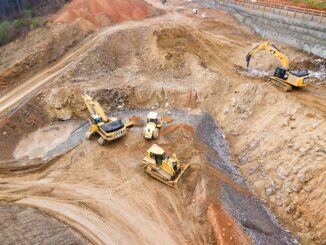Although it irritates a number of farmers and their families, farming is still viewed as a way of life, the implication being that it is a lifestyle choice, or a hobby, as opposed to what could be thought of as a proper job or a proper business.
Forgetting the implications for a minute, farming is a way of life, in large part because it is a unique environment in which people work.
The nature of farms and agricultural businesses means they are often family owned or run, that working long hours with little time off is often the norm, and there is a high risk of financial uncertainty, largely based on events outside the control of the farm management.
This means that the nature of farm work and the risk of injury or accident can be highly elevated in relation to the workforce, in ways that other industries or businesses might be able to minimise.
Health and Safety Legislation
Most governments both local and national have bought in health and safety legislation in order to protect people at work, and ensure that the management of any business or industry provides an environment which is safe and as far as possible risk minimal for the people who work there.
Often times these pieces of legislation exempts agriculture or farming or related businesses, partly cause the nature of the business makes it impossible to implement how are these practises, or because in reality it is impossible to implement them or monitor them for any effectiveness.
This does not mean that farms or agricultural businesses should be exempt from this type of scrutiny, it means simply that the responsibility for it is put on the farm management as one of their management responsibilities, within a different legal context.
This is often a difficult position to put farmers in, and can mean there is sometimes a difficulty in enforcing health and safety standards, because they are the ones who are setting them.
The need for some type of external pressure to which management can respond is actually a healthy thing and is often not present in these types of businesses.
This means that the farm management has to rely on their own knowledge of health and safety procedures, as well as the types of risk or hazards that apply to their own industry.
Whilst many farmers are highly capable in this area, some are not, and it is an area where risks or hazards can be missed, simply because of lack of knowledge or experience.
Cultural Beliefs
Beliefs that farming is a lifestyle or a way of life also have serious implications for issues or concerns around health and safety.
Many people who work on farms understand the real potential for danger in a number of situations, especially regarding machinery, equipment, young children, chemicals, hazardous materials etc, and are well aware of the real risks these present.
At the same time, there is often a belief that the nature of farming makes it a dangerous occupation, and that in reality little can be done to change this.
This type of belief is often something that people who work on farms grow up with and can at times lead to what is often referred to as a learned helplessness.
This means that people acknowledge or accept there is a danger but believe that little can be done to prevent it.
This is absolutely not true for the majority of farming and agricultural businesses.
Health and safety is a massive issue and most potential situations of risk of injury or accident can have a number of precautions put in place to either minimise them or prevent them altogether..
Many farms and agricultural businesses do this, and in large part real prevention has happened especially where farms and the agricultural industry generally share their experience with each other about best practise, what works, and perhaps most importantly what doesn’t work.


